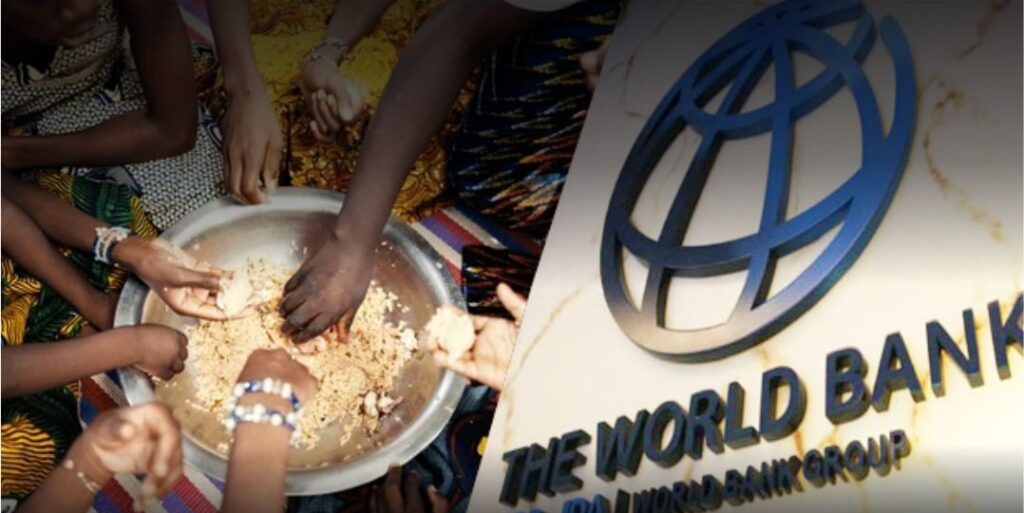The World Bank, in its latest report on global food insecurity, has warned that food prices remain elevated in low-income countries, worsening hunger and economic hardship. The Bank estimates that over 280 million people experience acute hunger daily, emphasizing the urgent need for interventions, 9am News Reports
The crisis is fueled by conflict, displacement, climate shocks, and macroeconomic distortions, leading to severe food shortages worldwide. To combat this, the World Bank has outlined an ambitious strategy to improve food security and strengthen food systems globally.
World Bank’s Action Plan on Food Security
The Bank’s plan focuses on:
- Enhancing agricultural productivity by leveraging technology to reduce methane emissions, promote agroforestry, and increase crop yield per water unit (“crop per drop”).
- Strengthening global collaborations to optimize resources and reduce fragmentation in foreign development aid.
- Addressing the financial impact of poor diets while increasing the availability of nutritious food worldwide.
- Tackling climate change effects to ensure sustainable agricultural production.
These initiatives aim to revamp global food systems, mitigate climate risks, and boost nutrition security while fostering economic growth in developing nations.
Regional Food Security Updates
1. Europe
Despite adverse climatic conditions, sustainability concerns, and shifting consumer demand, the agricultural sector in Europe is expected to remain resilient.
2. Latin America & the Caribbean
A major challenge is the screwworm fly infestation (Cochliomya hominivorax) in Costa Rica, Guatemala, Honduras, Nicaragua, and Panama, which threatens livestock and food security.
3. East Asia & the Pacific
Rising costs of essential food commodities are straining household budgets, especially for low-income families.
4. Middle East
The Gaza Strip is experiencing severe food shortages, with staples, dairy products, fresh vegetables, and meat barely accessible to residents.
5. West Africa
Food insecurity in West Africa remains critical, driven by:
- Extreme weather shocks
- Ongoing conflicts and insecurity
- Rising food prices
- Macroeconomic challenges
Food Crisis in Nigeria
Nigeria’s food security situation is worsening, exacerbated by:
- Exchange rate depreciation
- High transportation costs
- Low domestic cereal production
Rice and wheat prices remain under pressure, with food inflation hitting 39.84% year-on-year (YoY) in December 2024. Persistent insecurity continues to disrupt food production and supply chains, making it one of the biggest threats to agricultural growth and economic stability.
The World Bank’s report underscores the pressing need for global action to address food insecurity. With hunger levels rising and economic pressures mounting, sustainable solutions are critical to ensuring food access, affordability, and stability in vulnerable regions, particularly in Nigeria and other developing economies.
Stay tuned to 9am News Nigeria for more Breaking News, Business News, Sports updates And Entertainment Gists.
















